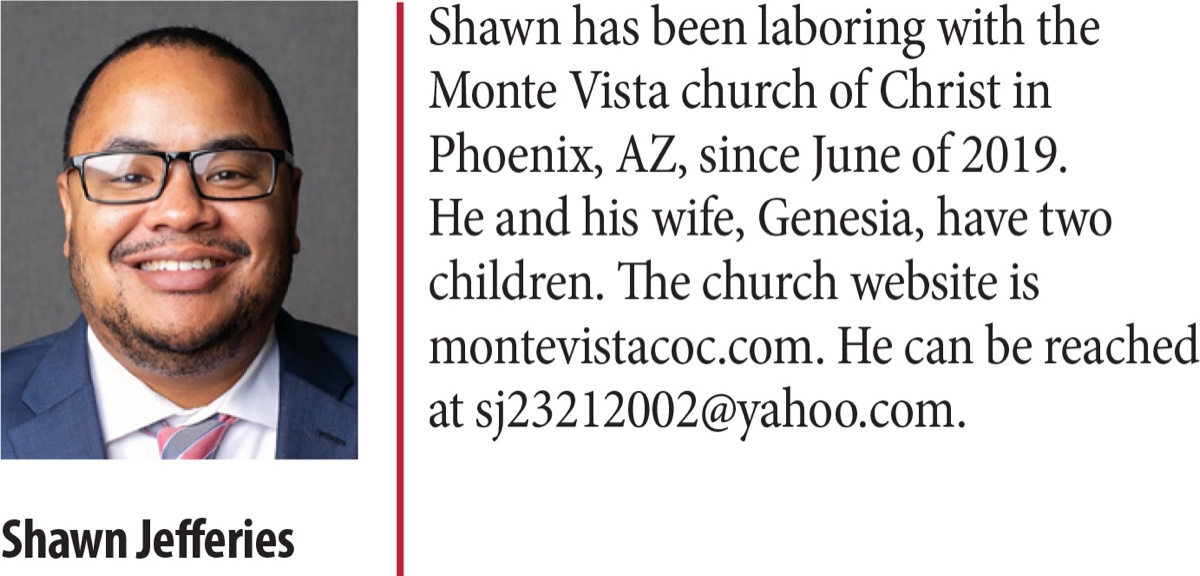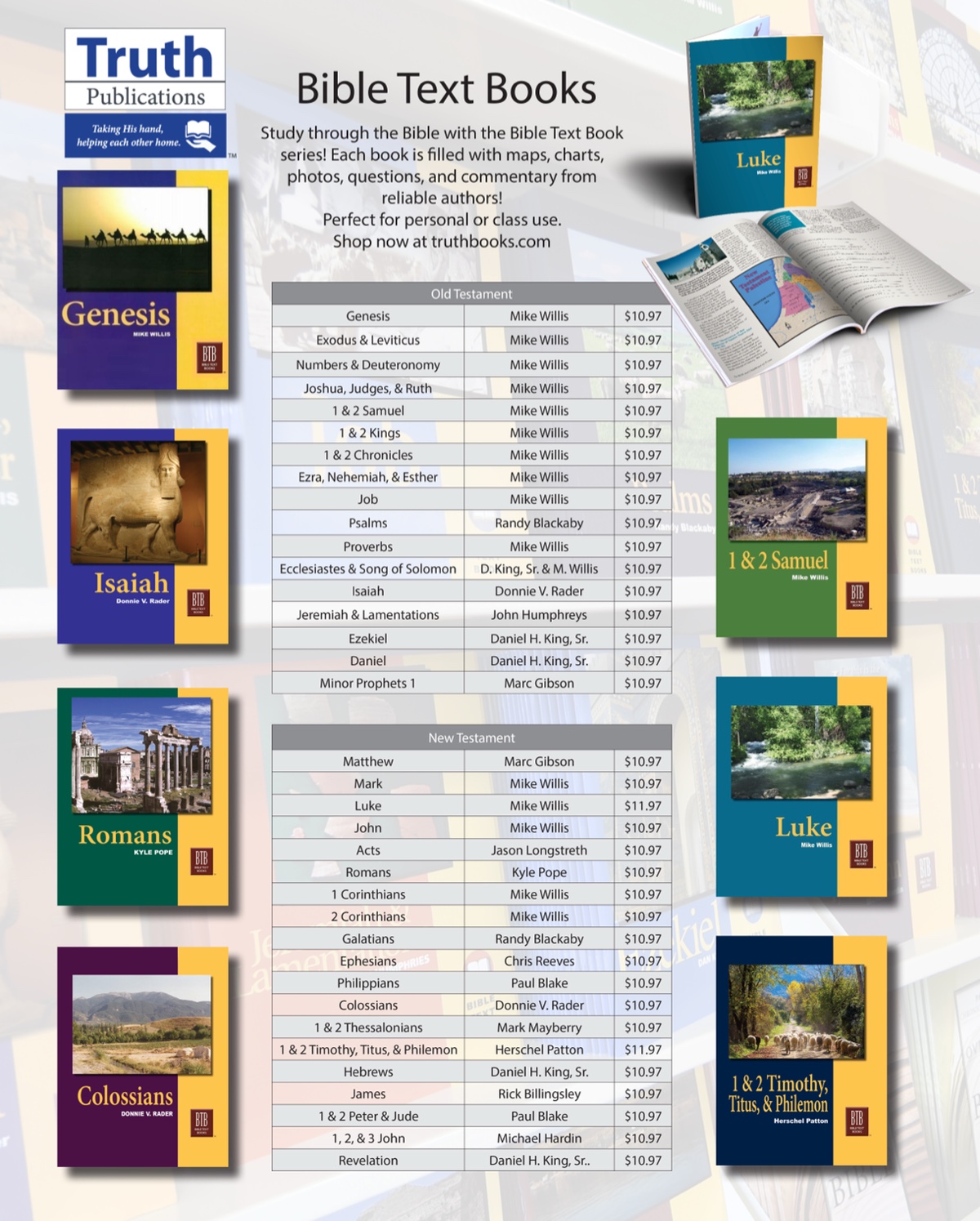By Shawn Jefferies
Synopsis: While being “woke” may seem helpful, it is actually harmful, and has become a destructive tool of Satan.
The woke movement has had a tremendously negative impact on race relations in this country. While we have moved past ugly and harmful periods of legalized slavery and segregation, many are using the statement “stay woke” to suggest America is inherently racist. The phrase promotes the idea that America is a country of white privilege, racial profiling, white supremacy, and systematic and institutional racism. It means that white people are prejudiced and should feel guilty over the sins committed by some of their ancestors.
As a black man who preaches the gospel and labors with a wonderful congregation made up of all races, I am deeply troubled by the impact “wokeness” will have on our country and even the Lord’s kingdom. I fear that if adopted by kingdom citizens, the progress made in diversifying our local congregations over the last several decades will be set back significantly.
I also fear that being “woke” will only diminish acts of true racism. It will be like the shepherd boy who kept falsely calling “wolf.” His false cries eventually led to deaf ears. Once the real wolf showed up, no one would believe his call, and the wolf ate the sheep. In the same way, if the word “racism” continues to be used loosely in our society, in time, when actual acts of racism are performed, they will be overlooked.
What other dangers are attached to being “woke”?
It is hypocritical to argue that America is full of racism and discrimination while also doing the very thing you claim to oppose. This also is discrimination. This also is racist. This also is intolerance towards others because of the color of their skin.
Let’s be clear. All forms of racism are evil! Racism demonstrates partiality among the nations. The Apostle Peter preached, “God is not one to show partiality, but in every nation the man who fears Him and does what is right is welcome to Him” (Acts 10:34-35).
The Apostle Paul (who was given a special ministry to the Gentiles) proclaimed that in the kingdom of God, “there is neither Jew nor Greek, there is neither slave nor free man, there is neither male nor female; for you are all one in Christ Jesus” (Gal. 3:28).
In the days of the prophet Ezekiel, the children of Israel felt that God was punishing them for the sins of their forefathers (Eze.18:1-2). Their conclusion was wrong! God judges people based on their actions, not the actions of others (Eze. 18:19-20; Rom. 14:12; 2 Cor. 5:10).
I recently discovered that my ancestors were slaves in South Carolina for many years. Many of them were beaten and raped by their masters. I can also remember my grandparents (who raised me in the south) telling me stories about the days when they were required to drink out of separate water foundations, go to all-black schools, ride at the back of buses, and eat at different counters from whites. There were even times when they were called the N-word and other racial slurs.
My ancestors were not the only ones to experience racism. Many other blacks experienced the same treatment for hundreds of years in this country. Yet, it is wrong to hold the sins of the past against people today. I wouldn’t want my ancestors’ evil deeds held against me, and I refuse to hold others to a different standard.
Some of my closest friends have told me that their ancestors were slave masters, fought in the Civil War to preserve slavery, and even supported Jim Crow laws in the south. They confessed to being reluctant to share that information with me because they feared I might shame them and make them feel guilty. Without hesitation, I told them, “I will not!” What did they have to do with the past actions of their family members?
Jesus demands that we treat all people in the manner we want to be treated (Matt. 7:12). We must judge people by their fruits and not by the fruits of others (Matt. 7:15-20; John 7:24). Every person deserves the benefit of the doubt until proven otherwise (1 Cor. 13:7).
Eliab is an example of someone who was unnecessarily suspicious of another. When his younger brother, David, brought food and inquired about the battle between the Israelites and the Philistines, he incorrectly judged David as having wicked and evil intentions in his heart (1 Sam. 17:26-29).
Being “woke” gives birth to more Eliabs. It generates suspicion. It advocates the judging of hearts, fear, mistrust, and pessimism. These are tools that Satan can use to divide and conquer God’s spiritual family!
Instead of suspicion and mistrust, God wants kindness, trust, and optimism in the body of Christ (1 Cor. 13:4-7). He wants the exercising of the fruits of the Spirit (Gal. 5:22-23). He wants unity, devotion, service, and genuine love (John 17:20-21; Rom. 12:9-11). Since the Lord’s church is made up of all races of people, suspicious hearts must be eliminated for solid relationships to be formed.
No one is born a racist. Like most sins, racism is a sin that begins in a person’s heart. It is closely connected to the sin of pride (Mark 7:21-23). Is it not prideful for someone to feel superior to another because of the color of their skin?
Since racism is a heart problem, being “woke” is not the solution. Viewing a segment of people as inherently racist will not end prejudice. Neither will politicians, riots, looting, affirmative action, taking down certain monuments and flags, or blaming others for past sins. None of these things is at the root of racism. Many of them only add fuel to the fire.
The solution to the sin of racism is Jesus! His death broke down barriers between the races and made it so that all could become one in the family of God (Eph. 2:13-18; Gal. 3:26-29). Jesus calls on us to be peacemakers, not people who are always contentious and hostile (Matt. 5:9). He demands that compassion and mercy be extended to all people (Luke 10:30-37). The main thing that makes the parable of the “Good Samaritan” so powerful is its ending. Jesus shocked His original audience by making the Samaritan the good guy! The Samaritan was willing to help a desperate Jewish man despite the racism that existed between the two nations.
Stoking racial tension and causing conflict and division won’t end racism. However,, being like the Samaritan man will! Preaching and converting people with the gospel of Christ will! When the gospel transforms a person’s heart, any racism present is uprooted.
God unconditionally loves all people (John 3:16). He desires for all people to be saved (2 Pet. 3:9). He died for all people (1 Tim. 2:6). His gospel has the power to save and make all people righteous (Rom. 1:16-17). Regardless of people’s gender, background, economic status, or race, God desires them to be in fellowship with Him. He yearns for their salvation so much that He gave His only Son as a sacrifice for their sins!
While those claiming to be “woke” promote racial favoritism and white guilt, those who advocate God’s love treat all people with respect, dignity, and fairness. They are moved to see value in all people. They live with their eyes open to the reality of all nations being made in the image of God and the product of His creative work (Gen. 1:27; Acts 17:24-26). They never discriminate when sharing the gospel (Mark 16:15). They are driven to call out real acts of racism (Gal. 2:11-14), love their neighbor as themselves (Matt. 22:39), and even pray for those who have hatred and racism within them (Luke 23:34).
This racial tension of culture should put within us a strong desire to be in heaven. It should cause us to long for the heavenly place where our souls will be with God for eternity (1 Cor. 15:50).
While many in our current society attempt to use race as a tool to divide and promote their agendas, let us strive to show the world a better way. Let us keep our eyes focused on Jesus, His word, and the place that He has reserved for those who possess His love in their hearts.



